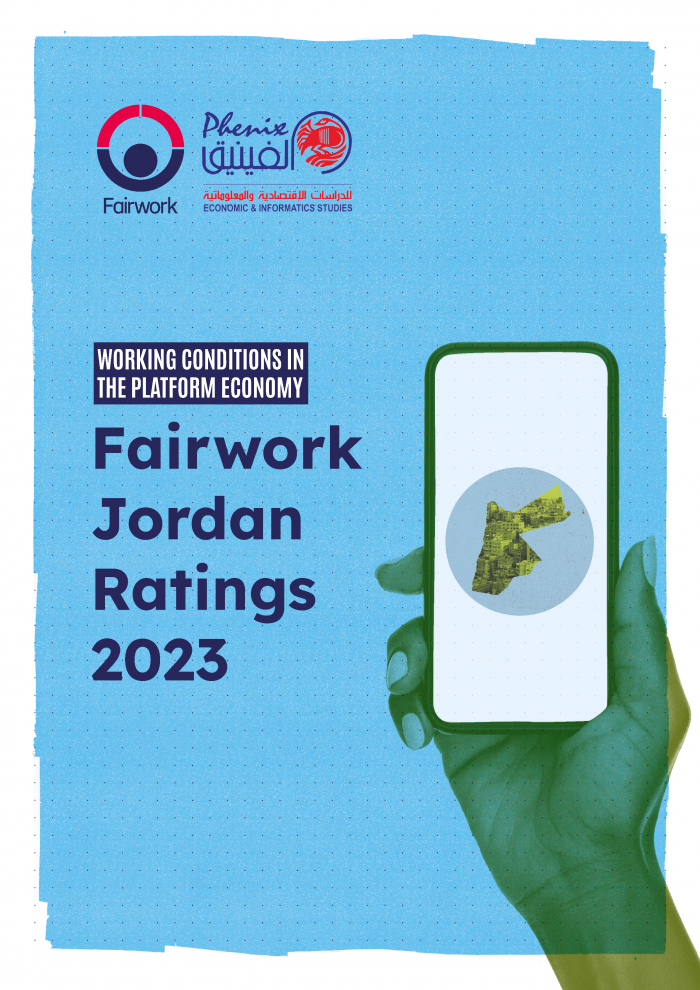Fairwork Jordan Ratings 2023: Working Conditions in the Platform Economy


This first Fairwork report on Jordan’s platform economy sheds light on the need for worker-friendly regulatory mechanisms. Regulation needs to ensure that international and national standards of decent work, particularly regarding minimum wage, working hours and access to social protection also consistently apply in the platform economy.
This report evaluates eight platforms operating in Jordan as ride-hailing and delivery companies against the five principles of fair work: fair pay, fair conditions, fair contracts, fair management, and fair representation. The platforms rated this year include Careem, Careem Box, Jeeny, Talabat, Taxi F, Queen Car, Uber, and Zad. None of the platforms was able to score a single point in this year’s rating. This absence of scores highlights the precarity of workers in Jordan’s platform economy, which results from regulatory gaps following the fast pace of the platform economy’s growth in Jordan.
Ultimately, the insights gained from this report can provide regulators – such as the Ministry of Labour, Ministry of Digital Economy and Entrepreneurship, and the Land Transport Regulatory Authority (LTRC) – with a fundamental understanding of the dynamics of platform labour and the specifics of workers’ experiences. With this understanding, we hope that regulators will collaborate with platform managements and platform worker representatives to devise reforms that improve working conditions in the platform economy.
Read report in: